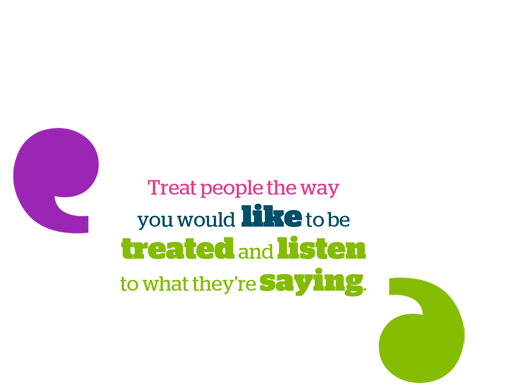"I try to treat people I cross paths with in the same way I would like to be treated."
You can have all sorts of different relationships that can be fulfilling and rewarding, for example with friends, parents, families, neighbours and teachers. However, relationships aren’t always easy and you might have problems sometimes. Just remember to keep talking to each other. Talking and communicating helps in many ways.
Friends are very important to young people. They are good for mental health, well-being and self-confidence. It’s hard when you argue, and you can feel confused and upset. It’s better to have a few friends who want the best for you than lots of friends who try and make you do things you don’t want to do.
Many young people think that having a boyfriend or girlfriend is the most important relationship - but don’t feel you have to just because your friends are, or do anything you’re not ready for.
"Similarly you may feel put under pressure to be in a relationship which may even include a forced marriage."






